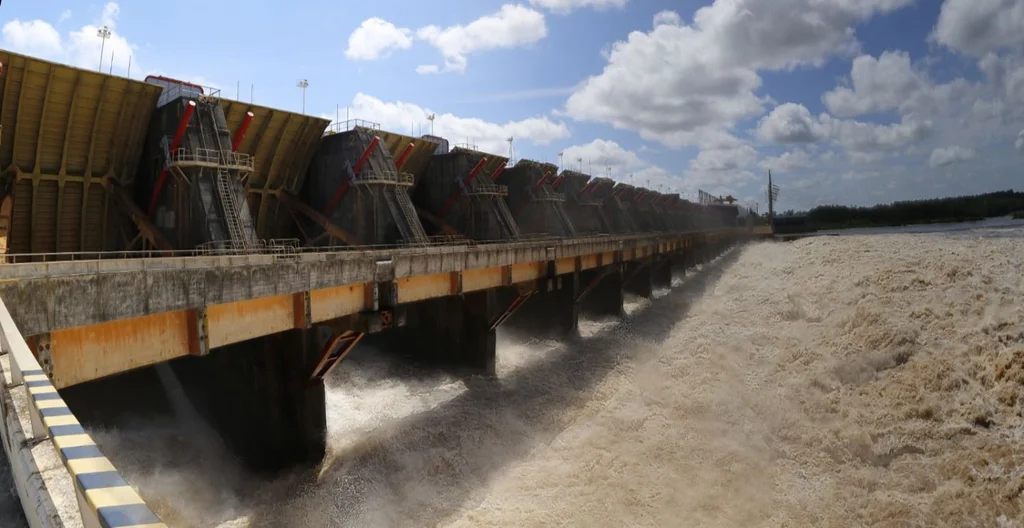The start of 2022 was very different, and at least for now the arrival of another black swan seems a distant possibility. The rains in Brazil caused the demand of the northern neighbor to go outand trade today is almost exclusively limited to one-off sales that are made to Argentina in the early morning hours.
There is another point that was also added to the scenario as of February and that is the rising oil prices. The strong volatility of international prices after the beginning of the war between Russia and Ukraine, led to the fact that in March UTE decided to limit its exportable supply only to surplus renewable energy (mainly wind). In other words, diesel-fired power plants are not used for this purpose and their ignition is reserved solely to meet the needs of the domestic market.
“We are being cautious, keeping the shipments that we had already ordered from Ancap and those that come for internal demand. And we are reviewing to determine prices that have a safety margin against this great volatility that there is. Later we will see if we offer, and if the neighbors will take it or not, but as a precaution we are not offering thermal energy”, he told The Observer the president of UTE. Silvia Emaldi.
Unplanned purchases, a problem for Ancap
The change of scenery also means that the vVolume of diesel demanded by UTE has decreased significantly compared to previous months. In the Ancap internal this is visualized with “A relief”given the international situation of high prices and little supply, added to the conditions of sale and price that are in force by decision of the Executive Power.
Uruguay does not have firm energy export contracts, so the joint venture purchases to supply specific regional needs they are difficult to plan ahead.
Nicholas Scafiezzo
An Ancap source explained to The Observer that in general a purchase that is not planned “it’s a problem”because I know “pay more expensive”and more so in these months marked by uncertainty. “They rip your head off because the market knows you’re in a hurry. (…) At this time, if they had to export (through a joint venture) we could even tell them; ‘hold your hand because you are not obliged to do so’he recounted.
The underlying difficulty is in the price at which Ancap sells diesel to UTE and which is defined by the Executive Power. Today that value is lower than the value that Ancap has to pay in the international market. when it has to import, so in the oil company it is considered that in this way the fuel is being “subsidized”, and at the same time it is not earning money.
For example, in the first quarter of the year, Ancap sold 50S diesel to UTE at $32.42 plus VAT per liter. The value of that fuel in Houston was US$1.1 per liter, to which must be added the cost of bringing it. Thus, the gap between the current price and the one Ancap intends to charge UTE (between $44 and $48 per liter) is between $10 and $15 (more than 30%), Search reported weeks ago. This point is an old claim of the oil entity.
In the first quarter of 2022, Ancap sold around 150,000 cubic meters of diesel to UTE, at prices that varied between approximately $31 and $34 per liter, according to data it accessed. The Observer. This fuel was used by UTE exclusively to supply internal demand.
Last year, the demand for fuel from the state company multiplied by 16 compared to 2019 and represented extraordinary income of US$ 56 million for the oil entity, according to the balance presented last week.
Today in the bilateral agenda with Brazil se analyzes the possibility of increasing electrical exchanges so that they do not only occur in times of system stress; but that they flow in a sustained manner, improving the use of the existing infrastructure. Having guaranteed demand would help to plan generation and also reduce costs.
Argentina the main market
Between January and March, energy sales to the region totaled US$43 million. Argentina led the purchases with some US$37 million. The peculiarity is that since last October, the values of commercialization to that market are above US$ 80 MWh. In the past, Argentina paid Uruguayan surplus energy at prices below US$ 30 MWh.
Brazil totaled purchases for just US$ 5.8 million. Currently, this country has not taken the weekly offers that Uruguay has made at US$ 80 MWh. Emaldi explained that for the second quarter, the pace of exports will probably not have major changes.

To the extent that the rains recover normal levels, in the following months, surplus hydroelectric generation could be counted on, and not only wind power. Towards the middle of the year it is likely that Argentina will require more energy. The president of UTE explained that since it “snowed little” last year, the meltwater will be less in the hydroelectric plants of the southern provinces and there is a forecast that they could increase Uruguay’s energy needs.
Forecasts suggest that in the April-May period, the Salto Grande dam would return to the usual production levels that it has not had for two years. This will also help to lower the cost of generation for internal demand, to the extent that less use is made of the thermal park.
“The Musket Game”
“This year we are very fair, so any increase in fuels is going to hit us hard”affirmed last week the representative of Cabildo Abierto in UTE, Enrique Pées Boz on Oriental radio.
“We have projections in different scenarios for 2022 without the black swan, with exports that are going to be around US$130 million instead of US$500 million (for 2021). Going back to normal years and with increases of US$50 or US$60 million in fuel, as could happen, would really hit UTE’s finances very hard. This is like the game of the mosqueta, Ancap does not fall, UTE falls, UTE does not fall, Ancap falls”, affirmed Pées Boz.







